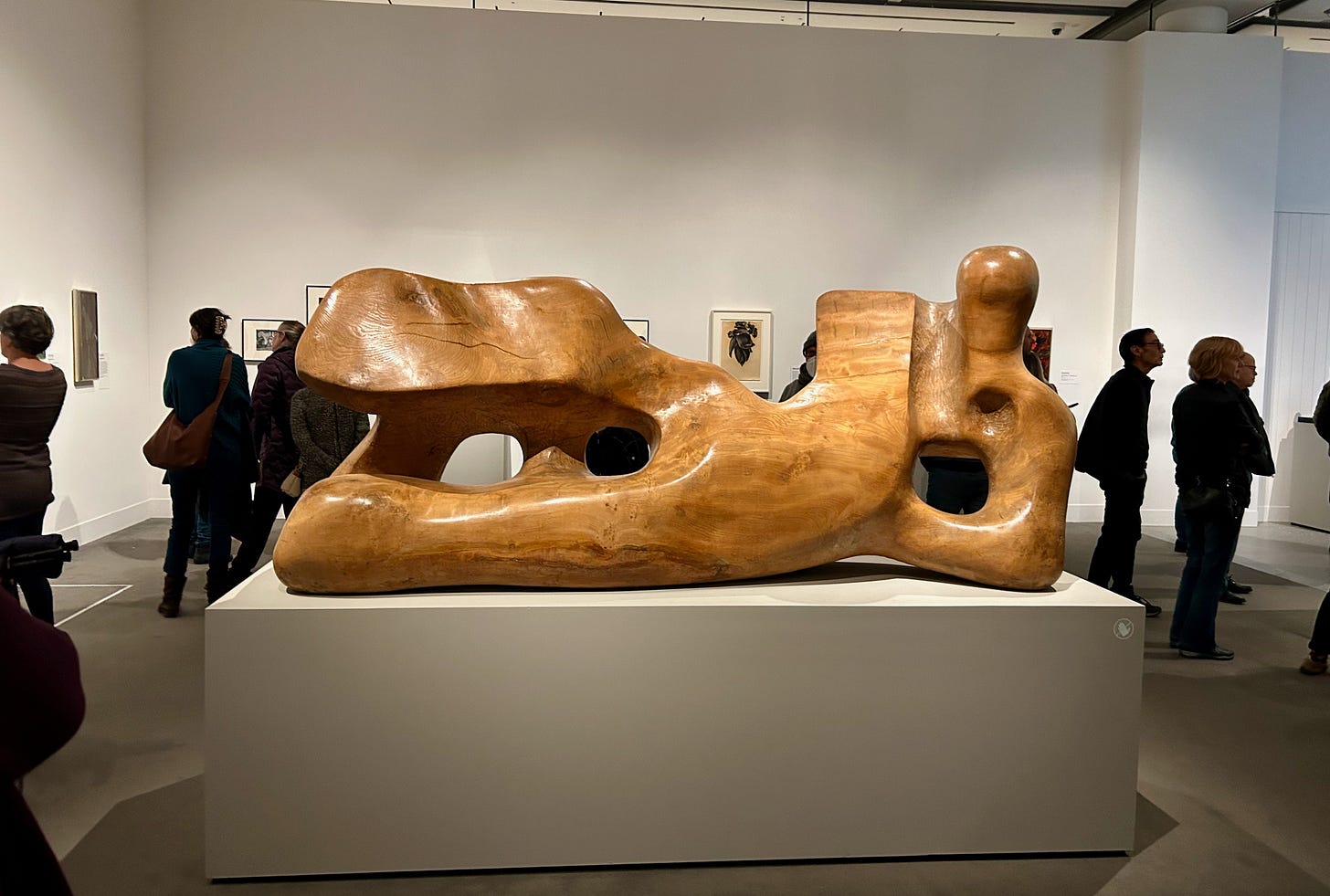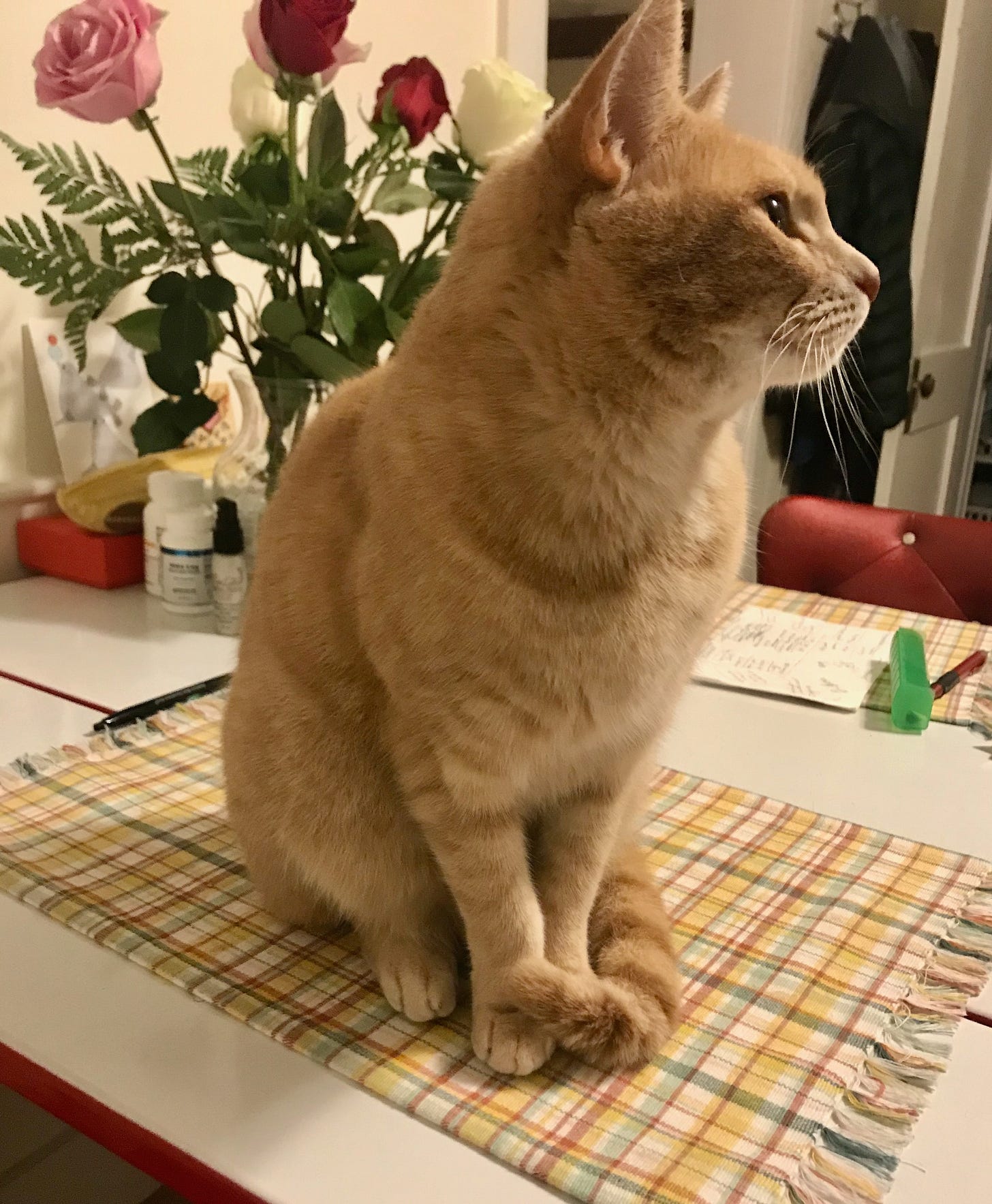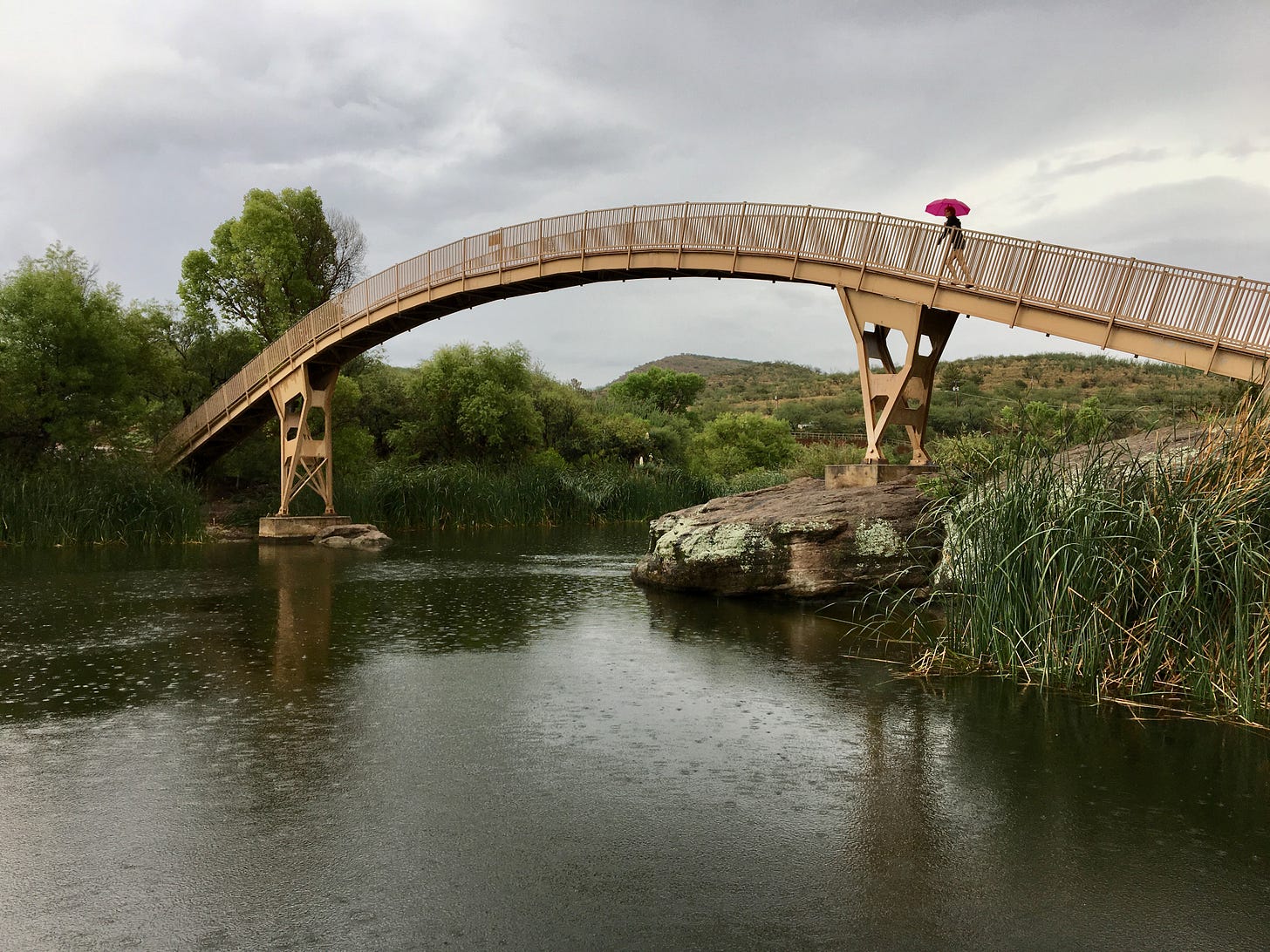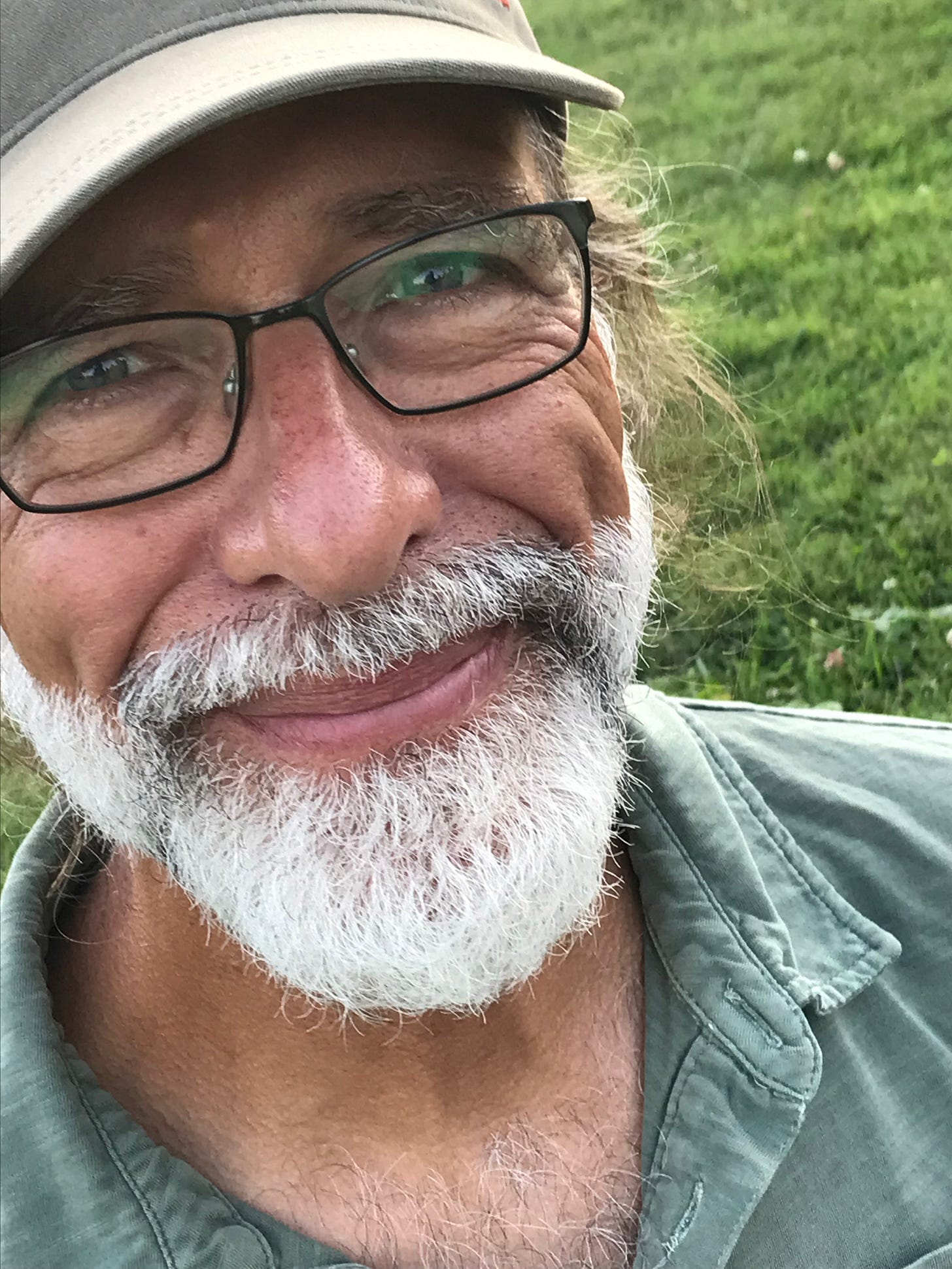Thank you for reading Shy Guy Meets the Buddha: Reflections on Work, Love, and Nature. If you enjoy these mindfulness-themed biographical essays and would like to show your support, please consider becoming a valued patron for only $5 a month. Or if you like, you could “Buy me a coffee.” Thank you! 💚
If someone were to ask me, “Who are you?” I would reply, “I’m Don Boivin.” Even if I knew they were looking for a more thoughtful answer, I would probably start there. “I’m Don Boivin, and...”
But am I Don Boivin?
Sure, most people would agree that names are not intrinsic, they are given, and only endure through repetition and mutual agreement. My name is not a part of me the way my arms and legs are, my brain and my beard. But a name becomes us in a deeply visceral way. Even if my college buddies had nicknamed me, say, Chip, and that’s what I came to be known as by most of my friends, I’m sure that whenever I heard the name called out—Hey, Chip!—or saw it in writing, I would experience that same strong sense of self that I do when I hear or see the name Don.
But last night at the end of my meditation I connected on a much deeper level with just how not Don Boivin I am. This was my immediate response, which I quickly jotted down in my journal:
1/16/2025. Meditation insight. Think about my own name. Don. Sure, there’s power there. Just writing it, I get a strong sense of self. But when I really think about it, my name does not actually belong to me in any way whatsoever. It’s not permanently attached to my body, nor is it recorded in some Heavenly Register. If you operated on me, you would find no signifiers that this could only be the body of Don, no matter how deep you looked. My name is not coded in my brain or stamped on my chest. It’s nowhere.
I am NOT ACTUALLY DON. That fact hit me strongly tonight. I am not, I am not, I am really not Don.
This visceral experience of what the Buddhists call emptiness or signlessness, is not really one whose full definition and essence you can grasp until you experience it for yourself. But I want to discuss emptiness anyway. And I’m going to speak from my own heart, my own experience, not from sutras or scripture or any sacred or psychological text, which, for the most part, I can never remember anyway. (Yes, I’ve done the reading; it’s where I first heard of emptiness, but I mean that I’m not just passing on intellectual ideas that I’ve memorized; I’m sharing my experience.)
Anything with a name holds a quality called emptiness: Don Boivin, eastern white pine, United States of America, table, chair. These things are only identified with their names because of exterior concepts that are applied to them: agreed-upon use, familiarity, legal documents, etc. You may say that a chair is absolutely a chair but does the micro-organism living deep within its grain consider it a chair? Does any being that does not know the concept of “sitting” see a chair as a chair? (My cat actually does enjoy sitting, and even she doesn’t see any difference between table and chair, I can tell you that!)
“Chair” is only one of infinite names and purposes this particular formation of wood and air and water and cells and molecules can fall under. To be a chair, this object requires a certain observer of a certain size whose impermanent life parallels the chair’s impermanent life. That’s a lot of dependent criteria. But the universe is large. In the grand scheme of things, a chair isn’t a chair. Truly, it is empty of a unique, defining identity, because we humans—the only ones for whom chair has meaning—don’t determine the world. We just agree on some things for the short time we’re here.
Identity Isn’t Intrinsic
I find it helpful to envision a flock of birds soaring gracefully above a deep forest, crossing the U.S. border into Canada. The birds don’t see “The United States of America” beneath them as they fly; they see a thick dark forest. When they cross that illusory border, it’s just more forest, more lake, more land. A country is not intrinsically a country; that’s just a concept defined by an arbitrary line drawn across something that cannot be separated.
Neither does a tall pine on the American side of the border look over at his Canadian cousin and mock him, “You think you’re better than me, eh?” That tall pine does not see “Canadian-ness” in his cousin. He doesn’t even see “pine-ness.” Nor even “tree-ness.” All of these ideas are concepts.
Likewise, we are not our names. We are not even “human.” We just are.
All of the things we think make us unique individuals—our looks, our abilities, our accomplishments, our titles, our publications, our wealth and fame—these things are concepts, too, that exist only insofar as other humans recognize them as valuable. They are empty of any innate, permanent, defining characteristics that make them one thing only. All phenomena are:
Empty of an independent existence (no being and no characteristic can exist without its dependence on other beings or entities to give it life and to give it meaning. This means that although we do seem like separate beings, to have borders or parameters, points at which we appear to end and other things begin, those borders are not as clearly defined as it’s convenient to imagine)
Empty of permanence
Empty of a solid, separate thing called self
Non-Self
That last point about self; let’s talk about that briefly, because I think the idea of non-self is one of the most difficult concepts to understand, and causes no end of struggle, confusion, and insecurity among those new to Buddhism or other spiritual followings that espouse this idea. I don’t like it when a seasoned practitioner says to someone new to meditation and mindfulness, “There is no self.” It’s an obtuse, disrespectful, and out-of-touch thing to say. Non-self is an experience that takes attention and nuance to grasp, not an idea to imperiously dump on someone else, no doubt causing that person to feel intimidated, insecure, or ignorant. My guess is that the person so carelessly throwing this concept around has only an intellectual rather than visceral understanding of the idea themselves.
We do have a self: it is that person whose name is Don, or Chris, or Mark, or Jennifer. It is the person who is conscious, who is reading this, who is not that other person across the room. Self is the person who feels pain when she cuts her finger or loses a friend and feels joy when she gets a new car or falls in love. It would be foolish to deny one’s own separate existence.
Non-self is the recognition that most of what we consider “myself” is not a thing so much as it is a thought or an action. Self is an ever-changing formation composed of memories, feelings, projections, beliefs, attitudes, perceptions, views—all imported or created originally from outside sources. Our bodies as well, from brains to eyeballs to toenails, are not composed of self, or of anything unique; they’re made of the exact same stuff as every other body. In these senses, we are all one thing, one life, a unified entity. No one human can ever, ever, exist without other humans and without all the other things that cause one’s existence: energy from the sun, air, water, food, our ancesters and family, the ground we walk on. In Buddhism, this is often called Interdependent Co-arising.
So What?
So, how does a deeper, more visceral awareness of emptiness and non-self serve me? If this were only an intellectual exercise designed to make me look cleverer than the next person, I would shrug it off as so much complex uselessness. Honestly, I don’t want to be clever, I want to be happy, I want to be at peace. (I want others to be happy, too; I selfishly want the whole world to be happy!)
Understanding the nature of self, as not a hard-wired, permanent feature of my aliveness, but rather as something that is fresh and new every time a neuron fires in my brain, helps keep me from getting too attached to that self and to everything else that I value in my life. And not being too attached, I don’t get quite so distraught when something I really like goes away: my health, my money, the love of a friend or partner, the opportunity I thought was mine.
Eventually, I will be going away: to whence, neither I nor anybody else knows, though I could guess (here’s looking at you, cloud, tree, river, earth, and all of the ever-materializing new life around me). I want to be as ready as I possibly can for that time of transition.
I truly believe there is a different way to approach life; a way that includes love, wonder, and peace—all the joy and beauty available to us—but doesn’t include fearfully or desperately clinging to those things or to self, other, status, and possessions. A deeper awareness of impermanence, and of these ideas of non-self and emptiness, rather than leading one to grow more attached to life and more resistant to death and loss, can loosen one’s hold on something that we realize, like a cloud or a rainbow, cannot be possessed.
And that way of being, that equanimous, non-resistant, peaceful and composed state, starts, ironically enough, with facing the fact that we are not all that. Rather than a solid, permanent entity, we are a continuous flow, a movement, a shooting star, a gently trickling stream, a stage performance.
The Greek philosopher Heraclitus said, “You can never step into the same river twice.” A river really is a great metaphor for this self that seems like everything to us now, but upon closer examination, reveals itself to be ever-changing and ungraspable. Myself is both significantly less and significantly more than we think it is. A wisp of nothing, and yet a miraculous phenomenon to be newly experienced, moment by moment, with an open mind and a grateful heart.
DB
I would be so thankful if you would toss some coins into my coffee mug. 🙏










When you were writing about the chair, I was reminded of the workbook portion in the book A Course In Miracles. One of the first lessons was, “It is only I that gives meaning to that which I see.”
Although I’ve only dabbled in the ACIM book off and on over the years, that one lesson has always stood out for me. And when I am finding myself perplexed over things around me, I pull that part of my mind back to that lesson and become calmer.
Good essay, I always love these deep topics.
I feel there are many ways to meditate. I’ve tried sitting in a group meditation, but my friends tell me I snore.
My form of meditating and being no self is when I’m gardening or creating art.
It turns out that everything is actually an agreed-upon story, a game we’ve decided to play to feel safer and ensure our survival for as long as possible. Of course, it’s not a conspiracy, because we’re not aware of it—it’s simply a self-deceptive game that includes the idea that you’re Don, and I’m Davor. Or are you not, after all? :)